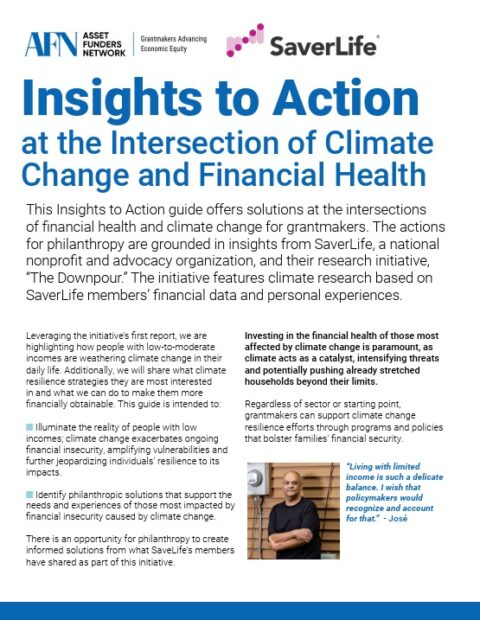Our financial security is a social determinant of health; debt stymies that security for individuals, communities, and the economy. In Debt as a Social Determinant of Health, the AFN team explores the burden of unmanageable debt arising from longstanding systemic inequities that degrades both health and wealth for people of color. We will also share research, strategies, and recommendations for philanthropy to provide financial relief, and in turn, improve prosperity and well-being among Black and Latinx households. In particular, we explore the example of systemic reform of the child support program. As currently structured in most states, child support is first used to pay back government for “debt” created through the payment of past public assistance, instead of supporting the child. This debt collection system creates barriers to successful employment, financial security, and family relationships.
In California, philanthropy leads the effort to reorient the system’s priorities. San Francisco’s pilot builds on the national trend of states looking for ways to eliminate uncollectable “debt” created by past benefits and empowers parents to support their children in the present. This innovative pilot – a collaborative effort between the state and San Francisco’s child support agencies, the San Francisco Financial Justice Program, and philanthropic partners (including many AFN members) – illustrates how systemic reform to increase current economic security improved well-being for both parents and children.
Presented at the 2021 GIH annual conference




